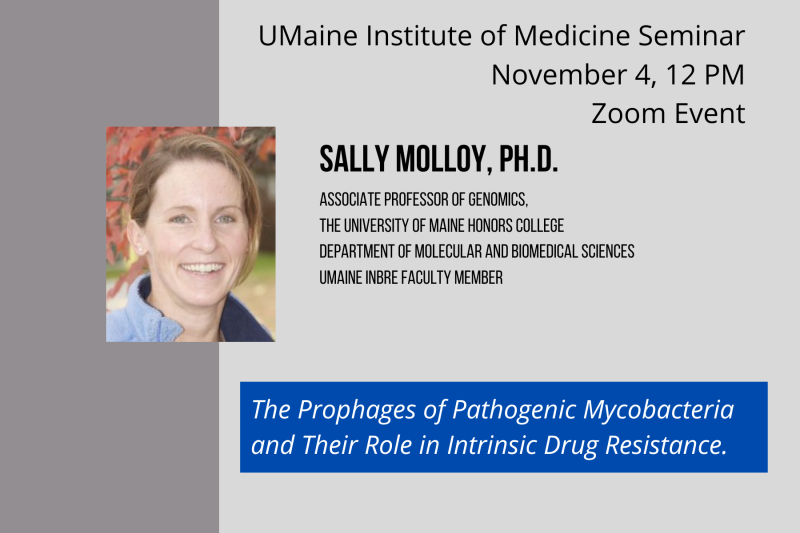Speaker: Sally D. Molloy, Ph.D. Associate Professor of Genomics, The University of Maine Honors College, Department of Molecular and Biomedical Sciences
About the seminar: Mycobacterium abscessus is an emerging pathogen in cystic fibrosis patients with a treatment success rate of only 45%, and is considered one of the most drug-resistant mycobacteria. Resistant isolates commonly display increased expression of intrinsic antibiotic resistance genes, making drug treatment challenging. The Molloy lab recently demonstrated that integrated viral genomes, or prophages, increase mycobacterial antibiotic resistance and expression of conserved mycobacterial antibiotic resistance genes. Bacteria belonging to the M. chelonae-abscessus complex are typically lysogens, meaning their genomes carry one or more prophages that have the potential to regulate intrinsic antibiotic resistance. The goal of the Molloy lab is to understand how prophages regulate mycobacterial antibiotic resistance and alter gene expression in mycobacteria. We are specifically investigating how phage lifecycles and phage-encoded toxin systems contribute to antibiotic resistance.
About the speaker: Dr. Molloy is an Associate Professor of Genomics in the department of Molecular and Biomedical Sciences and in the Honors College. She grew up in Maine and received her BA in Biology and German at Colby College and her PhD in Microbiology at the University of Maine. Dr. Molloy has an integrated teaching and research program in which she guides undergraduate and graduate students in bacteriophage research. She is the director of the UMaine SEA-PHAGES program, a year-long research course designed to give first-year students authentic research experiences in bacteriophage biology. Dr. Molloy’s research program focuses on interactions of prophages, integrated viral genomes, in pathogenic mycobacteria and how these viruses impact mycobacterial gene expression, virulence and antibiotic resistance. Read more
This event is free, but registration is required



